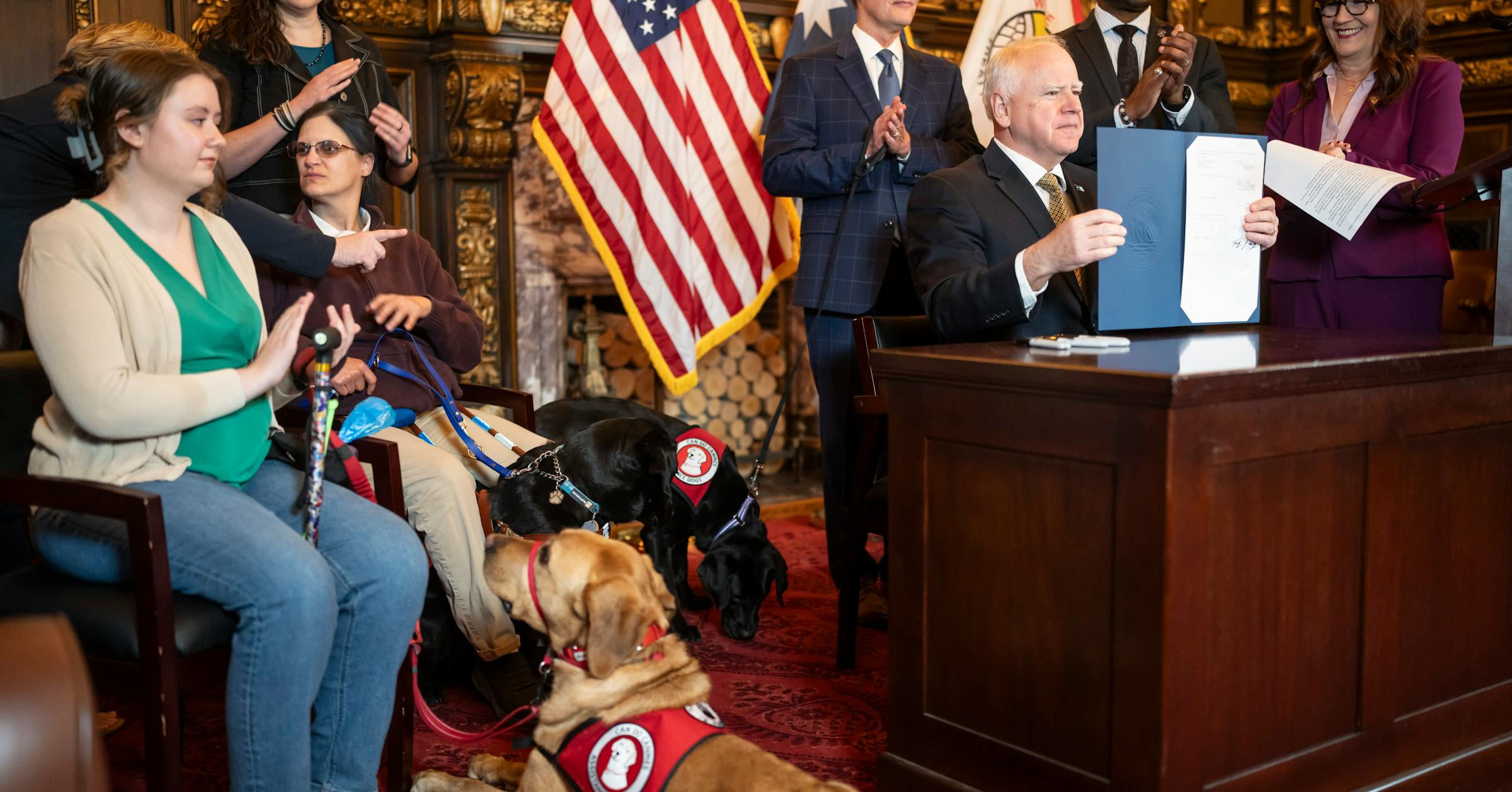Minnesota is poised for significant legal transformations as a suite of new laws takes effect, promising to reshape various aspects of public life from road safety to housing accessibility and criminal justice. These legislative amendments, recently signed into law, reflect a concerted effort to address critical societal issues and enhance the well-being of its residents.
Among the most impactful changes are expanded protections for service dogs in training, granting their trainers “full and equal access to all housing accommodations,” mirroring the rights of those with permanent service dogs. This progressive move aims to eliminate discriminatory practices, ensuring trainers are not charged additional fees for their canine companions, though they remain responsible for any damages incurred. To uphold standards, service dogs must be trained according to the guidance of an accredited organization.
Public safety receives a significant boost with new, stricter regulations targeting drunken driving offenses. Individuals with multiple prior DWI convictions will now face mandatory participation in an ignition interlock program to regain their driving privileges. The law dramatically extends the lookback period for previous offenses from 10 to 20 years, ensuring a more comprehensive assessment of a driver’s history when determining the necessity of a Breathalyzer device in their vehicle.
Furthermore, the duration for which DWI offenders must utilize ignition interlock systems has been increased, alongside longer license revocation periods, reinforcing the state’s commitment to curbing impaired driving. A critical financial barrier has also been removed; participants can now begin the ignition interlock program without immediately paying the $680 license reinstatement fee, though full payment is required before license reinstatement.
These enhanced DWI measures come as a direct response to tragic events, notably an incident last September where two individuals lost their lives when a driver with a history of drunken driving offenses collided with the Park Tavern patio, underscoring the urgent need for more robust legal deterrents.
Beyond traffic safety, the new legislation also fortifies public safety through expanded background checks for adult entertainment businesses. Cities and counties are now empowered to utilize a national database for these checks, moving beyond the previous limitation of only accessing state criminal records. This broader investigative capability aims to enhance oversight and ensure greater accountability within the industry.
In a pioneering step for criminal justice, participants in restorative justice programs will now benefit from a privilege akin to attorney-client or doctor-patient confidentiality. These programs, which facilitate direct dialogue between offenders, victims, and community members to address the impacts of crime, are designed to foster healing and understanding.
The newly established protection is strategically intended to encourage offenders to engage openly and honestly in these sensitive discussions, alleviating concerns that their shared information could subsequently be used against them in court proceedings. This aims to build trust and promote genuine reconciliation.
However, this confidentiality is not absolute; participants in restorative justice circles are explicitly prohibited from disclosing communications, documents, or other information utilized during the program, with crucial exceptions carved out for instances involving the reporting of child maltreatment and abuse of vulnerable adults, ensuring critical protections remain in place.






Leave a Reply